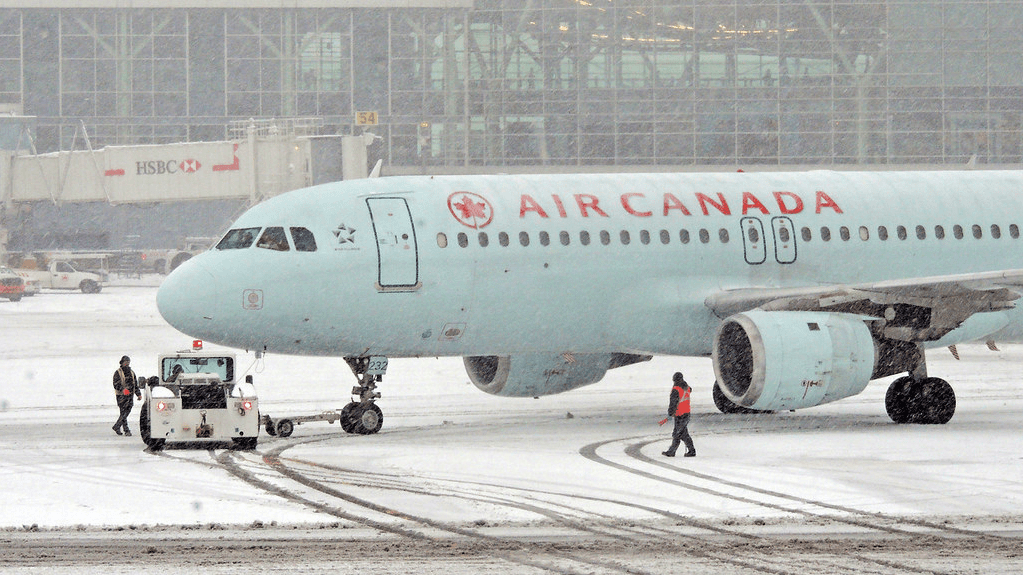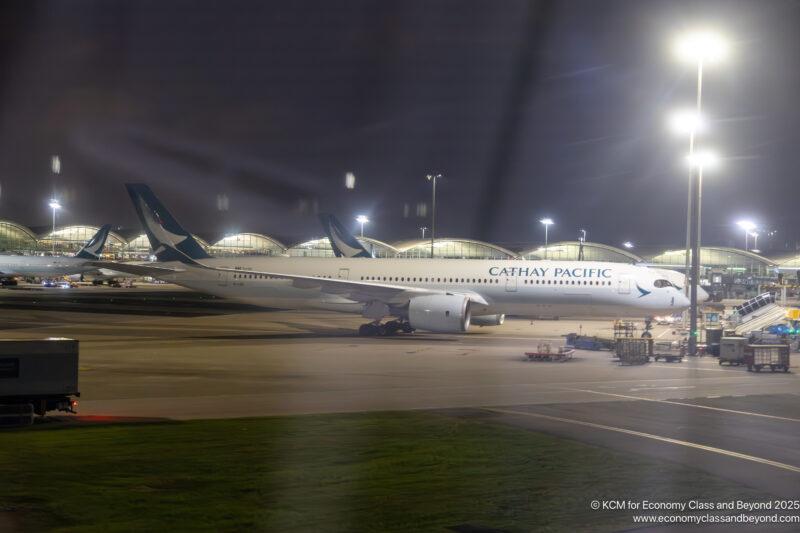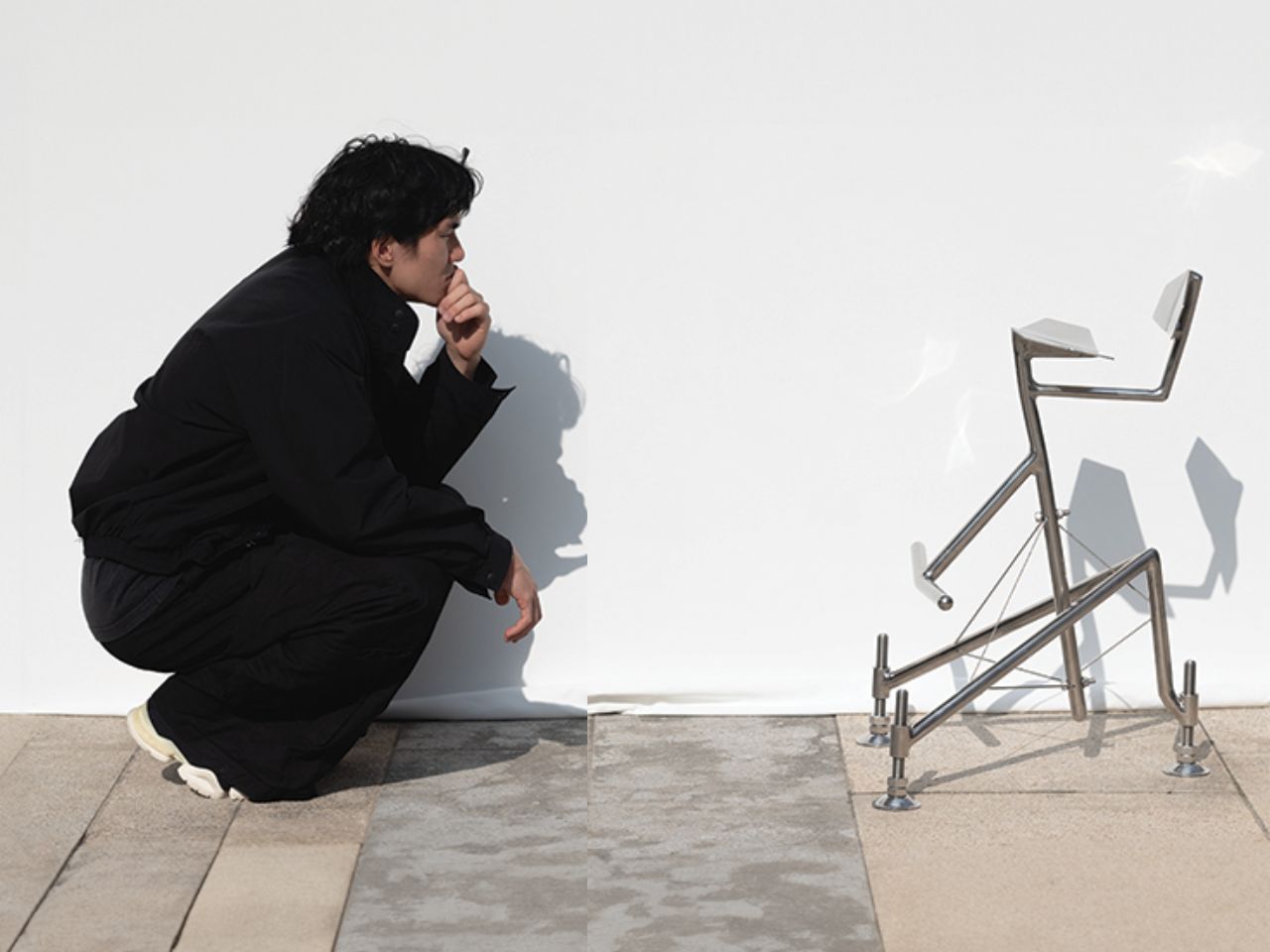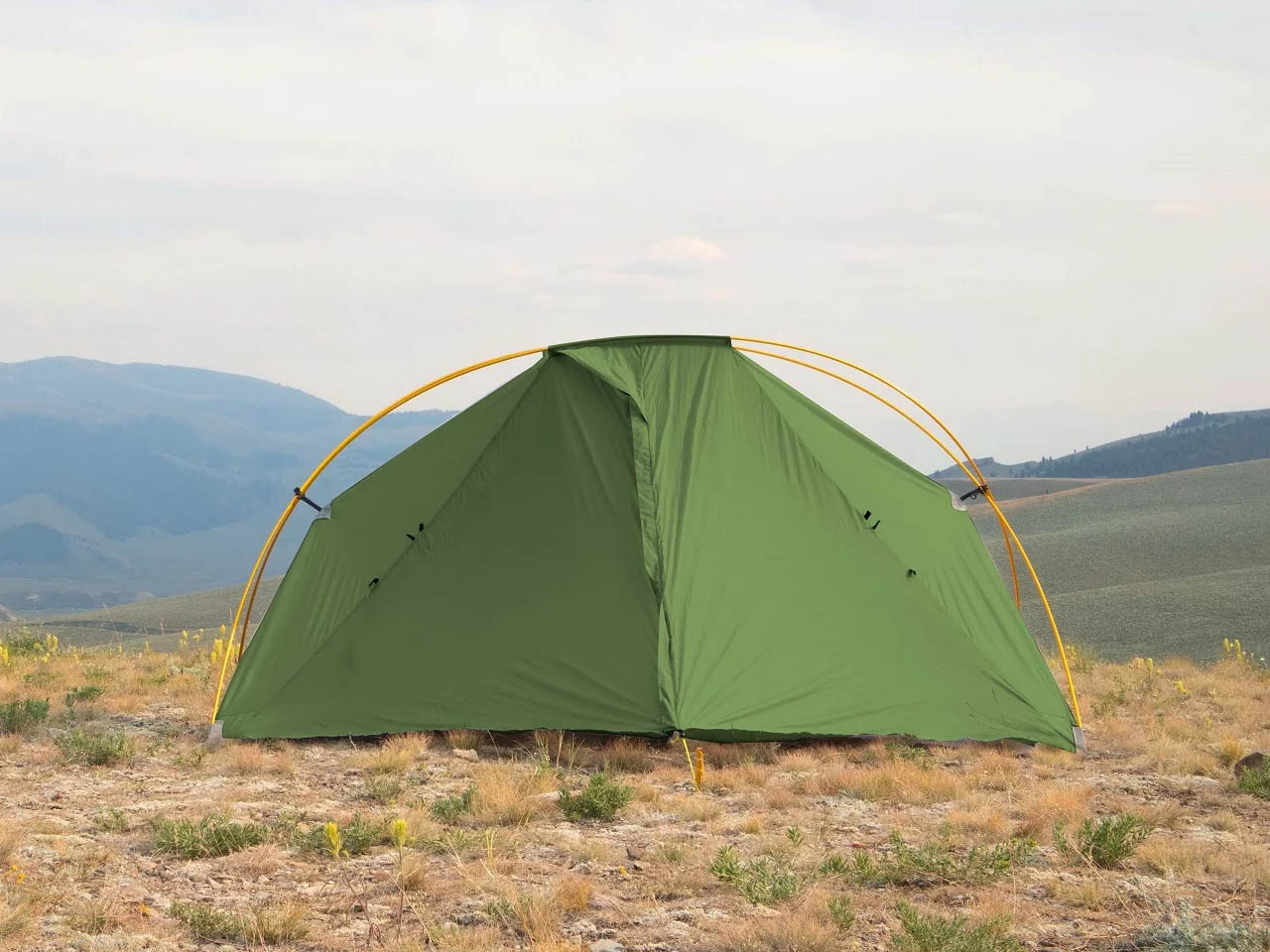Kintetsu Railway’s “kindness” seat: an innovative inspiration
When passenger experience innovations on Japanese railways come to mind, the high-speed Shinkansen, the backbone of the nation’s comprehensive train service, is usually first in line. But often some of the most thought-provoking #PaxEx comes from the most local of sources, as your author discovered on board the private Kintetsu Railway recently. Kintetsu is a... The post Kintetsu Railway’s “kindness” seat: an innovative inspiration appeared first on Runway Girl.
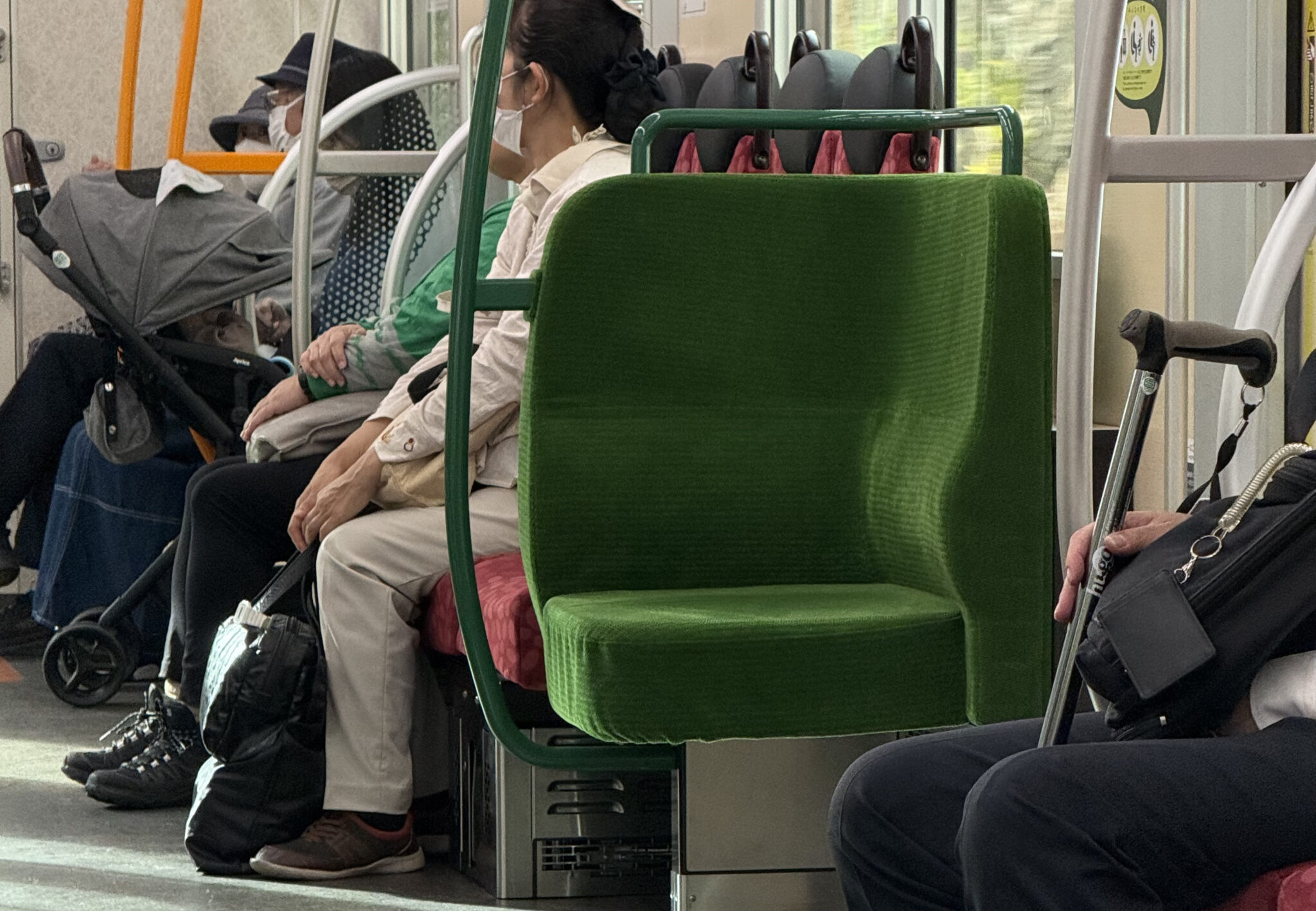
 When passenger experience innovations on Japanese railways come to mind, the high-speed Shinkansen, the backbone of the nation’s comprehensive train service, is usually first in line. But often some of the most thought-provoking #PaxEx comes from the most local of sources, as your author discovered on board the private Kintetsu Railway recently.
When passenger experience innovations on Japanese railways come to mind, the high-speed Shinkansen, the backbone of the nation’s comprehensive train service, is usually first in line. But often some of the most thought-provoking #PaxEx comes from the most local of sources, as your author discovered on board the private Kintetsu Railway recently.
Kintetsu is a commuter and regional private railway that operates in central-west Japan, mostly in the region between Nagoya, Osaka and Kyoto. It competes with JR Central and JR West, and in some cases with other private railways and subways in the region, and is well known for its impressive and award-winning premium express trains like the Shimakaze and Hinotori.
Both those trains are, of course, incredible experiences that bring a real luxury back to travel, but while travelling extensively on Kintetsu’s network in late 2024, the most striking innovation was on Kintetsu’s newest everyday workhorse commuter train, the 8A series.
These new 8A series electric multiple unit trains arrived in service in late 2024, and cut power consumption by nearly half compared with older trains — but the most innovative addition is the seating that the company calls the Yasashiba (Japanese for kindness) Space, translated to “Free Space” in its English signage.
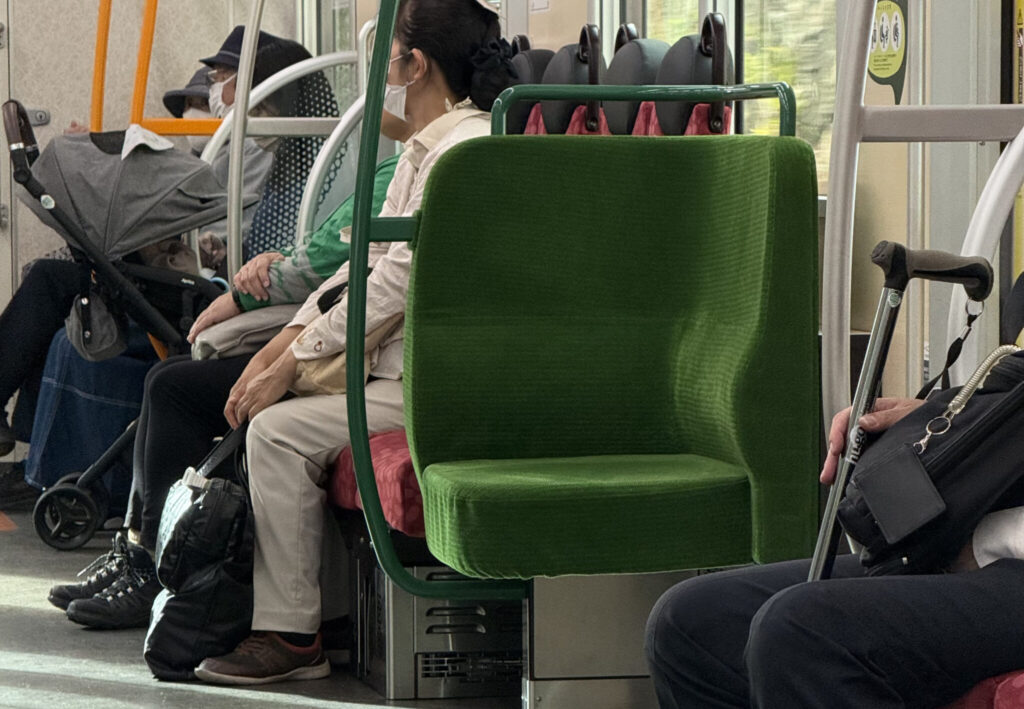 The new trains offer eight of these unusual L-shaped Yasashiba Space seats per car, with one adjacent to each of the middle door pairs of the four-door-pair cars.
The new trains offer eight of these unusual L-shaped Yasashiba Space seats per car, with one adjacent to each of the middle door pairs of the four-door-pair cars.
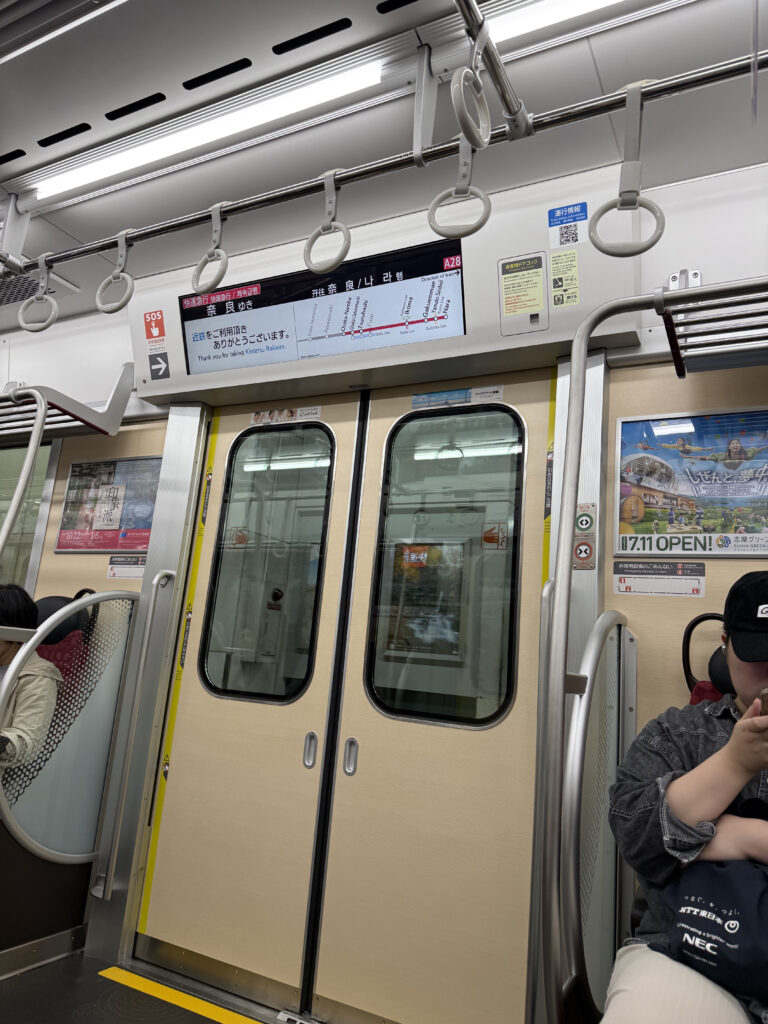
The Yasashiba Spaces are at the centre door pairs, which also feature digital signage. Image: John Walton
This L shape enables passengers in the seat to sit either forward or sideways (or at a sort of angle) according to their needs. The railway suggests that passengers with larger luggage, strollers or children might find this “particularly comfortable”, and indeed disabled passengers, anyone using assistive devices, or people with reduced mobility might find it useful as well.
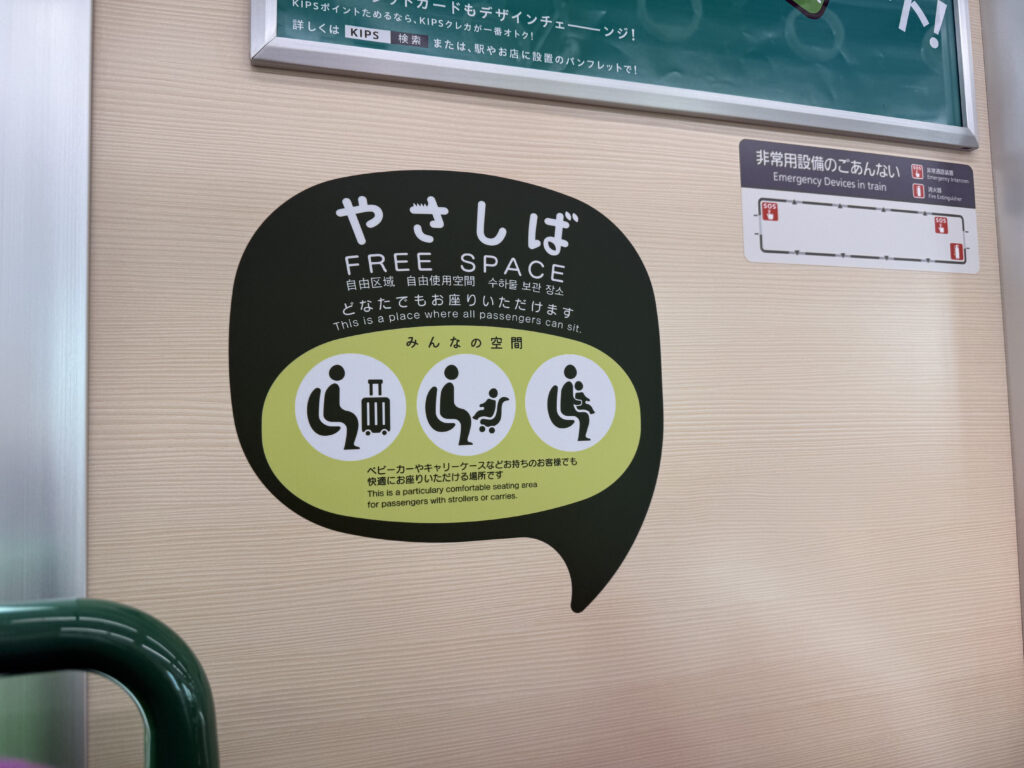
Each Yasashiba Space is labelled so passengers understand its use and who might benefit from it. Image: John Walton
The seat is covered in a pleasing medium green moquette that distinguishes it from the rest of the cabin, with the space for a suitcase or stroller outlined in a green decal on the floor — a visible way to mark out this space if needed but leave it accessible if not.
To aid luggage, strollers and wheeled devices, a small low-tech yet very clever ramped wheel-stopper corner, over which a wheel can be rolled so it stays in place, is also provided.
Laden down with a suitcase from a longhaul flight to Japan, your author tried the space out on the 40-minute journey from Osaka to Nara, and it was most welcome. The clever wheel-stopper meant there was no need to cling onto the suitcase as the train accelerated, decelerated or cornered, while the L-shaped seat with its twin backs was very comfortable. Frankly, it was also a relief not to feel a sense of imposition on any other passenger’s space with the suitcase, or to take up priority seating for those in greater personal need of it.
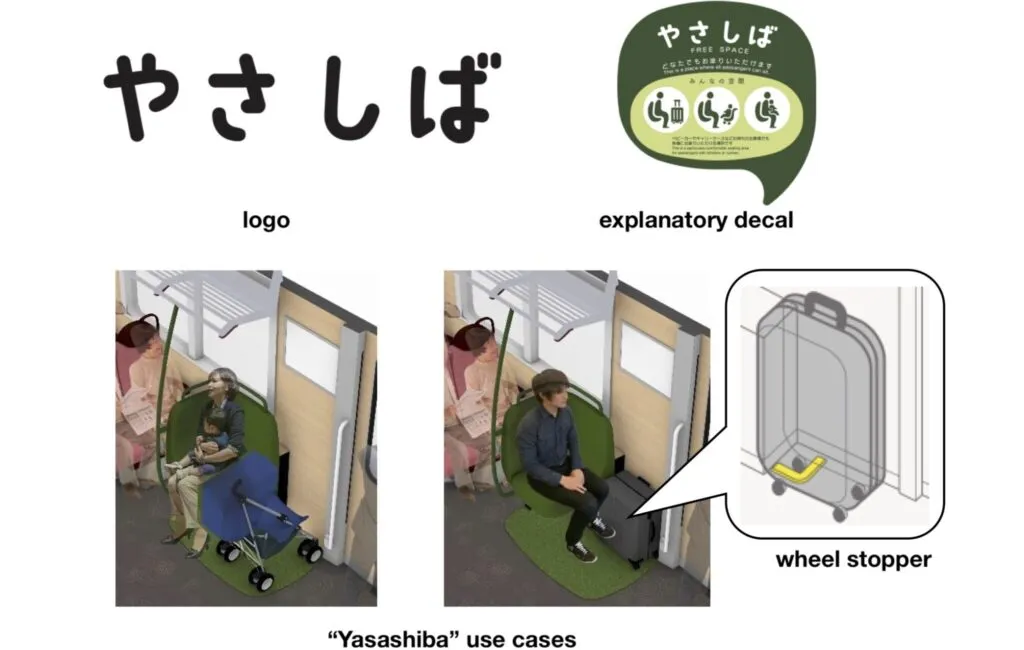
The Yasashiba Space is aimed at, among others, those with strollers and large luggage. Image: Kintetsu Railway. Translation: John Walton
The Yasashiba Space comes in addition to the sideways-on priority seating at either end of the car (for senior citizens, disabled travellers, pregnant passengers, people with reduced mobility or medical requirements, etc), opposite which at one end of the car is space for 1-2 wheelchairs.
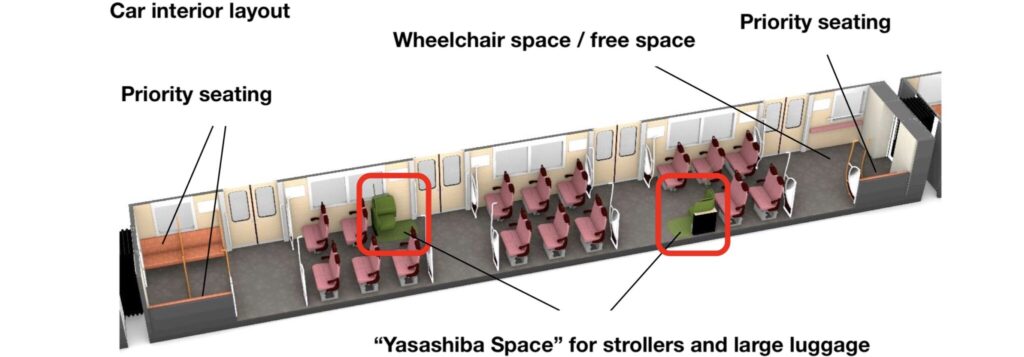
Two Yasashiba Spaces are in each car, which also feature priority seating, wheelchair spaces and seating that rotates. Image: Kintetsu Railway. Translation: John Walton
In addition, the functional and modern interior contains seats that can either be rotated to be positioned side-on to the direction of travel (maximising space for standing during busy periods) or facing the direction of travel (offering more comfort and privacy for passengers). While Japanese longer-distance trains have long had the ability to rotate seats so that passengers face the direction of travel, this is unusual in a shorter-range commuter train.
Kintetsu Railway is to be praised for making provision for the needs of all these groups of passengers, especially given Japan’s aging population, who may have additional mobility and accessibility needs as they grow older.
Reducing some of the issues around travellers with luggage — a hot topic given that luggage storage provision on Japanese trains is often minimal, with space rather given over to passenger seating and standing space — is also smart, especially since Kintetsu serves tourist hotspots like the cities and prefectures of Kyoto, Osaka and Nara.
In the aviation context, where multiple models of hard product for accommodating wheelchair users onboard are currently in development, can the Yasashiba Space provide inspiration for developments to meet the needs of even more passengers?
Related Articles:
- Flagging accessibility as EU eyes cross-border rail through-ticketing
- How TGV Duplex sets the pace for first class train travel
- JR East’s E8 Shinkansen impresses with speed and interior design
- Trenitalia’s Frecciarossa Executive proves delightfully decadent
- Delta Flight Products eyes near-term certification of Air4All
- Accessibility improvements proposed by Delta, Collins and Boeing
Featured image credited to
The post Kintetsu Railway’s “kindness” seat: an innovative inspiration appeared first on Runway Girl.
What's Your Reaction?











